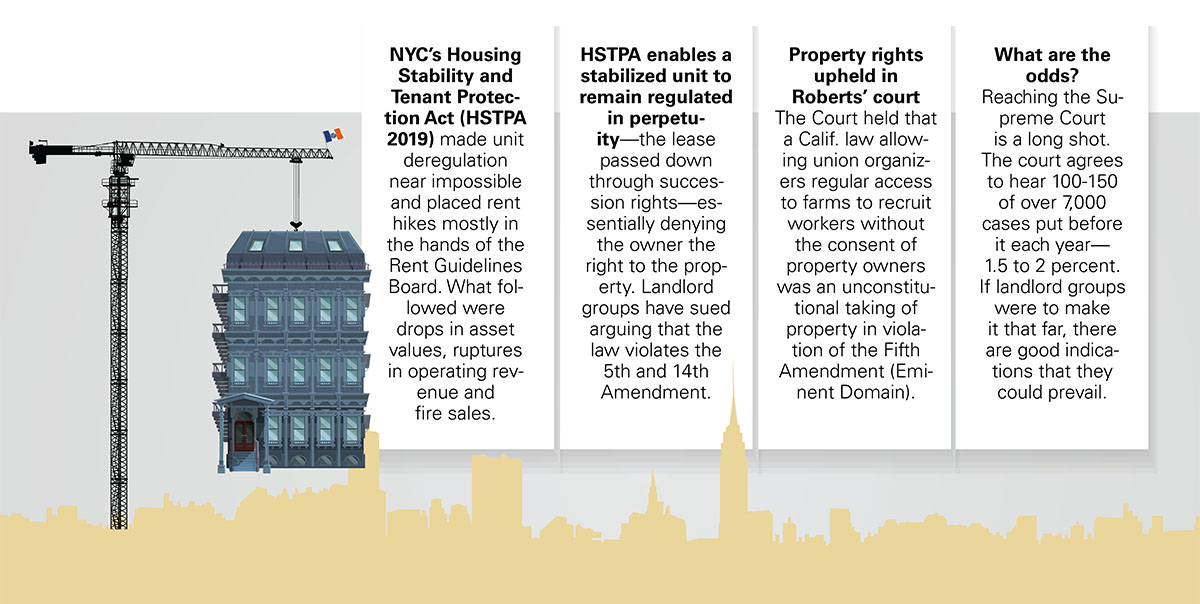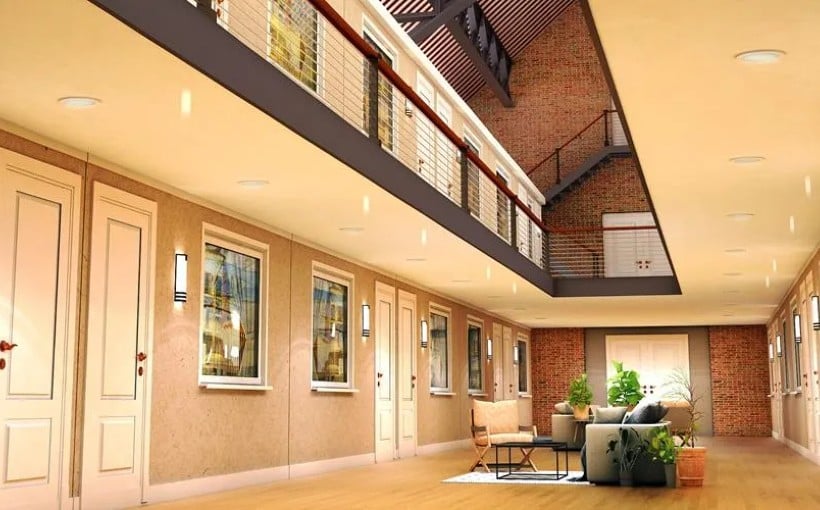The Supreme Court is considering a petition to hear a case that challenges New York City’s rent stabilization law as pressure builds from stakeholders who say the law infringes on the rights of property owners.
New York City’s Community Housing Improvement Program (CHIP) and the Rent Stabilization Association of NYC (RSA) are suing the city, having first filed a lawsuit in 2019, challenging the constitutionality of New York’s Rent Stabilization Law (RSL).
The plaintiffs have argued that the RSL has had a “detrimental effect on owners and tenants alike and has been stifling New York City’s housing market for more than half a century.”
“New York’s Rent Stabilization Law is the nation’s most stringent rental housing regulation, governing one million New York City apartments,” the lawsuit states.
It argues that once a tenant’s lease is up, the law prevents owners from occupying their own property, changing its use or simply leaving it vacant. Instead, the tenants are the “successors” of the property and unless they do something illegal, the tenants are entitled to lease renewals in perpetuity.
The case was dismissed by the U.S. District Court for the Eastern District of New York and again by the U.S. Court of Appeals for the Second Circuit in late 2020. But plaintiffs now hope that the Supreme Court will hear their case.
And they’ve entered the ring with legal heavyweights on their side.
“The breadth and depth of amicus support from across the business, real estate, and think tank community underscores the validity and urgency of our Supreme Court petition,” CHIP and RSA said in a joint statement.
“We believe the Supreme Court will find that the arguments laid out in our certiorari petition, and supported by these amicus filings, are clear and convincing: New York’s draconian rent control law is unconstitutional and must be invalidated. Only then can we pave the way for new, effective rental housing laws,” the groups wrote.
Amicus briefs have been filed on behalf of the plaintiffs from the U.S. Chamber of Commerce, real estate and small property owners associations, and major think tanks like Manhattan Institute, Cato Institute and Institute for Justice.
“People have the right to control their property. New York’s law took key property rights away from property owners—for example, by allowing tenants to occupy units indefinitely and barring owners from reclaiming their units for personal use,” said Tyler Badgley, senior counsel for the U.S. Chamber Litigation Center. “The Supreme Court should grant review to protect property owners from this unconstitutional overreach,” he said.
The plaintiffs in the case are not seeking damages or monetary compensation but instead are asking for declaratory and injunctive relief against the future enforcement of rent stabilization.
Such relief would not only protect the constitutional rights of property owners but also compel the government to focus on policy solutions to address unaffordable housing, like increasing the housing supply and providing housing assistance to those who actually need it, the plaintiffs say.
CHIP is an association of approximately 4,000 owners and managers of more than 400,000 rent-stabilized rental properties across all five boroughs in New York City.
The RSA is the largest trade association in New York City, representing 25,000 property owners and agents responsible for approximately 1 million units of housing.
The Supreme Court has yet to decide whether to take up the case, but it could as early as this fall.

Source Brianna Herlihy, Fox News
















